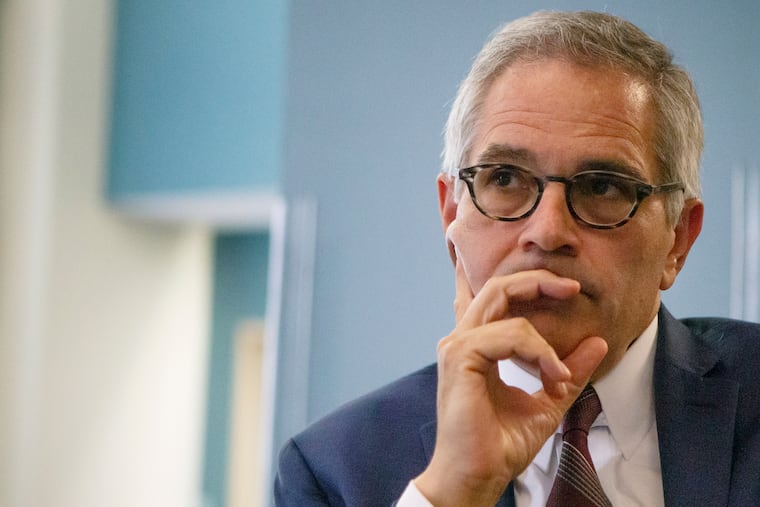Philly DA Larry Krasner will no longer prosecute people for possession of an addiction treatment drug
Though buprenorphine is an opioid, it presents a significantly lower risk of overdose than heroin or fentanyl.

The Philadelphia District Attorney’s Office has decided to stop prosecuting people for possessing buprenorphine — the opioid-based addiction treatment drug proven to give people a better shot at recovery.
In a news release, District Attorney Larry Krasner said the new policy is aimed at preventing fatal overdoses. Krasner’s office said that the move was inspired by a similar policy in Chittenden County, Vt., which reported a 50% drop in fatal overdoses in the year after it decriminalized the prescription medicine.
It’s also in keeping with Krasner’s broader policy on drug possession. His office has begun dropping possession charges for people who can show they’re in a treatment program.
Though buprenorphine is an opioid, its formulation presents a significantly lower risk of overdose than heroin or fentanyl. Its consumption is heavily regulated by the federal government, and doctors must undergo special training before they can prescribe it. State legislators in Pennsylvania have sought to impose further restrictions on its prescribing.
“Instead of expanding access to treatment and saving lives, government inaction has led to the creation of active street markets for these medications in Philadelphia and elsewhere,” the office wrote in its news release this week. Krasner said his office had determined that “a few hundred people” are arrested each year in Philadelphia for buprenorphine possession without a prescription. His office could not say immediately how many of those charges were prosecuted.
The District Attorney’s Office said research indicates that most people who use buprenorphine bought on the street are using it to stave off withdrawal. Often, drug users and harm-reductionists say, it’s easier to buy buprenorphine on the street than to enter a treatment program to obtain it through a physician’s prescription.
Researchers who interviewed 20 drug users in Allegheny and Dauphin Counties for a paper published in the International Journal of Drug Policy last year found that nearly all of the study’s participants did not use the drug to achieve a pleasurable high. Instead, they had bought buprenorphine off the street to get through withdrawal when heroin was unavailable — or when they didn’t want to use heroin. A “significant minority” of the participants had bought buprenorphine to try to wean themselves off other opioids, the paper found.
“For people addicted to opioids, it’s horrifying to not be able to get their next dose,” Krasner said. “A lot of them will take suboxone to get through. The alternative is jonesing so bad that you rob a corner store, [or commit] a burglary."
Suboxone, he said, could offer people a “moment of clarity” that not only helps them avoid withdrawal and overdoses, but leads them to seek treatment as well.